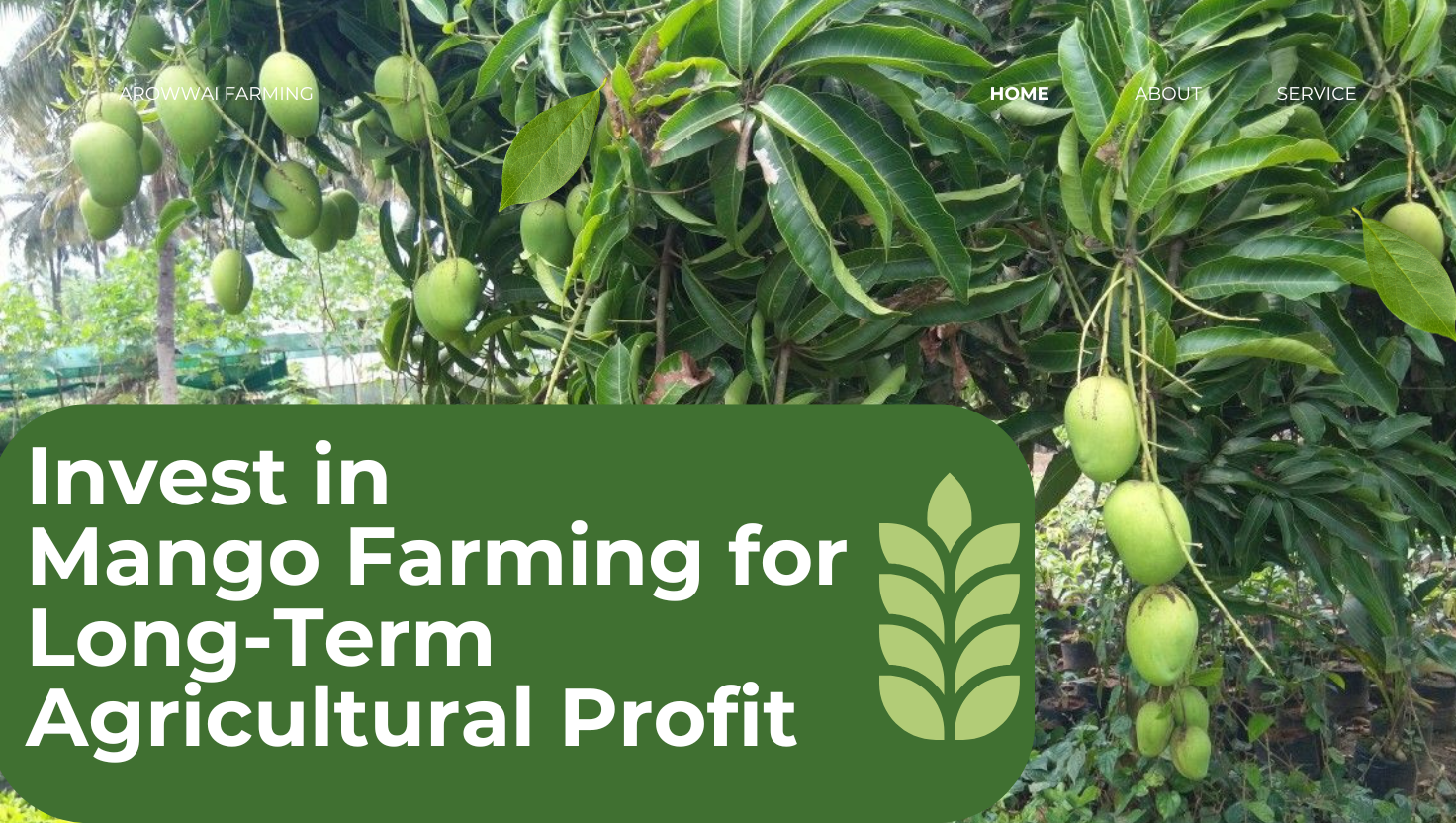Mangoes are more than just a delicious seasonal fruit — they’re a profitable opportunity for agriculture investment. With rising demand in both local and global markets, many smart investors and entrepreneurs are now turning to mango farming and farmland investments for stable, long-term returns.
If you’re wondering how to invest in mango farming effectively — whether through owning land, greenhouse setups, or eco farming models — this guide covers everything you need to know.
🌱 Why Mango Farming?
India is the largest producer of mangoes, and demand for organic, export-grade, and processed mango products is growing fast. A well-maintained mango orchard can give returns for over 30 years, making it one of the most sustainable and fruitful investments in agriculture.
🗓️ When Are Mangoes in Season?
Understanding the mango season is critical for business planning. In India, mangoes are typically harvested from March to July, depending on the region and variety. This harvest window helps you plan production, packaging, and marketing for maximum profit.
💼 Business on Agriculture: Why It’s a Growing Trend
Today, agriculture is not just for farmers — it’s a growing business opportunity for:
- Urban professionals looking for passive income
- NRIs wanting to invest in their roots
- Eco-conscious entrepreneurs entering green farming
- Startups involved in hydroponic agriculture and greenhouse systems
Mango farming fits perfectly into this trend due to its high market value and growing global demand.
🏡 Farmland Investment: How to Start
To invest in mango farming, your first step is to buy farmland. Here’s how:
- Choose the right location – Mangoes grow well in warm regions like Tamil Nadu, Andhra Pradesh, Maharashtra, and Gujarat.
- Check soil and water availability – Good drainage, loamy soil, and access to irrigation are key.
- Buy agricultural land legally – Ensure the land use type is permitted for fruit farming.
- Partner with a farm management company – If you’re not actively farming, they can manage the mango farm for you.
🌳 Mango Orchard Investment Models
There are 3 common ways to invest:
1. Traditional Orchard Farming
- Long-term ROI (7–8 years for full maturity)
- Good for those with patience and long vision
- Higher profits after the orchard matures
2. Eco Farming / Organic Mango Farms
- Higher fruit value due to organic certification
- Growing demand among health-conscious buyers
- Better for export markets
3. Greenhouse or Controlled Farming
- Grow mangoes off-season
- Useful for high-value exotic varieties
- Ideal for urban or limited land spaces
🧪 Hydroponic Agriculture: Is It Practical for Mangoes?
While hydroponics is mostly used for leafy greens and herbs, experimental growers are exploring hydroponic mango cultivation in greenhouses. This futuristic model is ideal for:
- Limited-space growers
- Urban investors
- Tech-driven agriculture startups
Although it’s still in early stages, it could be the next evolution in greenhouse farming.
🥭 Green Mango Benefits: A Side Business Idea
Don’t ignore green mangoes — these unripe fruits are used for:
- Pickles and preserves
- Juices and chutneys
- Health products (rich in Vitamin C and digestive enzymes)
By harvesting and marketing green mangoes early in the season, you create an additional revenue stream.
🧑🌾 Care for Mango Trees: Basic Tips for Investors
Even if you’re not hands-on, you must know the basics:
- Plant spacing: Maintain proper distance for airflow and sunlight
- Water management: Avoid overwatering during flowering
- Pruning: Helps improve fruit quality
- Fertilizing: Use organic inputs for better yield
- Pest control: Eco-friendly methods are preferred for organic farming
Proper care = higher returns and longer tree life.
📈 Long-Term Profit Potential
Here’s why mango farming is a smart long-term investment:
- Mango trees yield for 25–40 years
- Seasonal profits from both fresh and processed fruits
- Land value increases over time
- Opportunities in eco-tourism, farm stays, and agri-export
🏠 House Farming & Small Scale Entry
No land? No problem! Start with house farming using:
- Dwarf mango trees in grow bags or pots
- Small greenhouses or rooftops
- Organic fertilizers and drip irrigation
This is a great way to learn before scaling up into a full mango orchard investment.
📊 Final Thoughts
Mango farming + farmland investment = profitable agriculture business.
By blending traditional methods with eco farming, greenhouse technology, and a market-driven approach, you can create a long-term income source that also promotes sustainability.
Whether you’re planning a mango orchard, exploring hydroponics, or investing in organic mango land — now is the perfect time to plant the seed for a fruitful future.

